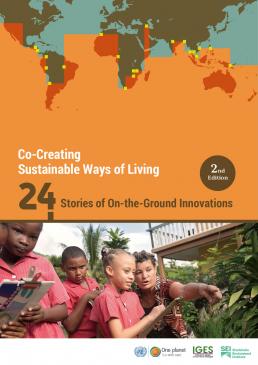When we speak of lifestyles we refer to the relationship individuals and communities have towards their resources and the daily actions they make using these resources. Eating, moving and commuting, heating and cooling our homes, working, enjoying free time, etc – all these actions involve how individuals plan and organize their daily lives in relation to the resources they have. While economic growth may entail better standards of living we must be aware that, at the same time, economic growth rests on increased consumption and production, which is the root cause of fast-paced environmental degradation. Shiting our daily habits and the choice frameworks that steer our lifestyles towards sustainable practices and systems is a key step in ensuring healthy lives and thriving ecosystems.
While the economic growth may be prevalent for a fraction of the global population there are many under consumers who are unable to meet their daily needs and are subject to daily vulnerabilities. Linking these two realities, of economic growth and increasing poverty, sustainable lifestyles provide alternative contexts of living for both high- consumers and those under vulnerable living conditions. Taking into consideration the variety of cultural, economic, and geographic contexts on this globe we refer to lifestyles in plural signaling that there are many versions of a sustainable lifestyle that must be designed and implemented by those that live their reality.
Co-creating sustainable ways of living
These 24 projects, often referred to as the Trust Fund projects have enabled local teams around the globe to implement projects aimed at fostering the shift towards sustainable ways of living. Funded by the Government of Japan 24 of these projects had a clear focus on enabling low-carbon lifestyles. All 24 of these projects take place in the global south and have been coordinated and supported by the Sustainable Lifestyles and Education Coordination Desk (10YFP)
Our synthesis report summarizes essential points of the 24 completed projects, including the challenges of sustainable lifestyles, opportunities utilized, actions are taken, learning, and other achievements.
Learn more








